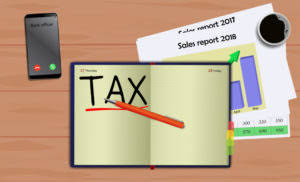
Miscellaneous expenses, which are often irregular and unpredictable, can include items like office supplies, travel expenses, small repairs, or last-minute purchases. While these costs may not fall into more structured categories, they still need to be managed and tracked effectively. Miscellaneous expenses are considered indirect expenses as they are not directly tied to the production of goods or services. By keeping a close eye on these seemingly insignificant costs, businesses can ensure they remain within budget and avoid any surprise financial shortfalls. These expenses are often unpredictable, and having a budget that accounts for them can prevent businesses from overspending. Budgeting for miscellaneous expenses provides a cushion for any unexpected miscellaneous cost virtual accountant that don’t fit into the standard categories of labor, materials, and overhead expenses.

Encourage Cost-Conscious Behavior

Therefore, it is crucial to closely monitor and control these expenses to avoid any unnecessary or excessive spending. Miscellaneous expense is usually recorded as a separate line item on the income statement under operating expenses. It is important to track these expenses separately to accurately analyze the company’s overall financial performance. Miscellaneous expense refers to any small, infrequent, and non-operating expense that cannot be categorized into a specific account. These expenses are not directly related to the primary business activities and can include various items such as office supplies, bank fees, or travel expenses.
- They typically cover small, non-recurring expenditures, such as items bought for the office, business trips, and other similar fees.
- One of the important aspects that must be considered in this regard is miscellaneous expenses.
- For example, if you spend $5 on a coffee during a work meeting or $15 on a last-minute gift for a friend, these amounts may seem trivial but can accumulate quickly.
- The cost of rent relating to production and sales activities are charged to the cost of sales and selling expenses instead of operating, general, and administrative expenses.
- They are often the unpredictable costs that come up as part of normal business operations but don’t necessarily fall under specific budget lines.
Regularly assessing your office supply spending can reveal surprising totals over time.

Digital expense management systems allow businesses to automate the process of tracking and categorizing all expenses, including miscellaneous costs. By digitizing this process, businesses can reduce human error, improve accuracy, and streamline the entire expense management workflow. Miscellaneous expenses are typically recorded separately from other major business expenses in the general ledger. Businesses often use a miscellaneous expense account to record non-recurring expenses. This separation is important as it helps businesses track the impact of these expenses without cluttering the primary accounts, such as payroll or inventory. In accounting, miscellaneous expenses are defined as irregular and non-recurring costs that don’t fit into defined categories of business expenditure.
- While having miscellaneous expenses can help you save money during tax season, you can only get a deduction if you abide by all IRS guidelines.
- It’s about striking a balance between being prepared for incidental costs and not allowing them to derail financial priorities.
- Also known as sundry, out-of-pocket, general or incidental expenses, different companies refer to miscellaneous costs differently depending on the industry and context.
- Miscellaneous expenses encompass a variety of minor expenditures that can include things like office supplies, unexpected travel fees, or small subscription services.
- While most costs fit neatly into predefined buckets like rent, utilities, or payroll, there’s always that odd collection of expenditures that don’t quite belong anywhere specific.
- Diverse costs cover a wide range of miscellaneous expenditures, such as small office supplies, subscription services, and minor maintenance fees, all of which can add up and impact the company’s bottom line.
- Regular audits of these expenses can also uncover spending patterns that, while not immediately apparent, may reveal opportunities for cost savings.
Automate Savings
- The cost of goods sold does not include any cost incurred on inventory that is unsold at the end of an accounting period, which is why it needs to be subtracted from its calculation.
- Businesses can better use their money and make the most of their resources if they can keep track of and cut down on miscellaneous expenses.
- Leveraging digital accounting software can streamline expense recording and facilitate real-time monitoring of company finances.
- For example, if you’ve averaged $50 monthly on office supplies and travel fees, adjust accordingly.
- Keeping track of miscellaneous expenses is a good way for owners and managers to understand their financial situation, which is important for making smart decisions.
By raising awareness about the significance of miscellaneous expenses and providing practical examples, this guide aims to empower readers to take charge of their finances with confidence and clarity. Remember, every penny saved on miscellaneous expenses is a step towards financial stability and long-term how is sales tax calculated success. Moreover, regular reviews of miscellaneous expenses can reveal patterns or areas where cost-cutting measures can be implemented. This proactive approach to financial planning not only helps in avoiding unnecessary expenditures but also contributes to building a stronger financial foundation for the future.
- Tracking miscellaneous expenses gives taxpayers an accurate picture of what deductions they are eligible for.
- Note that if you’re an educator, you have the option of claiming the educator expense deduction, an above-the-line deduction that you can take even if you’re claiming the standard deduction.
- During a particularly busy quarter filled with pitches to prospective clients, the agency exceeds its client entertainment budget due to several last-minute dinner meetings at upscale restaurants.
- Since our son has been diagnosed with ADHD and sensory processing disorder, our expenses are changing rapidly.
- Ever wondered why miscellaneous expenses matter if they’re just small, random purchases?
What is a miscellaneous business expense?

We will examine the impact of miscellaneous expenses on a company’s income statement and balance sheet, shedding light on their examples of miscellaneous expenses implications for financial performance and stability. Many miscellaneous expenses are tax-deductible, making it important for businesses to maintain accurate records. Digital expense management systems allow businesses to store receipts and documentation digitally, ensuring that all necessary information is readily available during tax season.
Ensuring that miscellaneous expenses are properly categorized and tracked makes it easier to take advantage of these potential tax benefits during tax season. Without accurate tracking, miscellaneous expenses can quickly get out of hand, leading to unexpected cash flow issues. Additionally, being unaware of these small costs can make it more difficult to plan for future spending. By categorizing and tracking every expense, regardless of size, a company can gain better control over its finances, making more informed decisions and avoiding financial mistakes.


No Comments